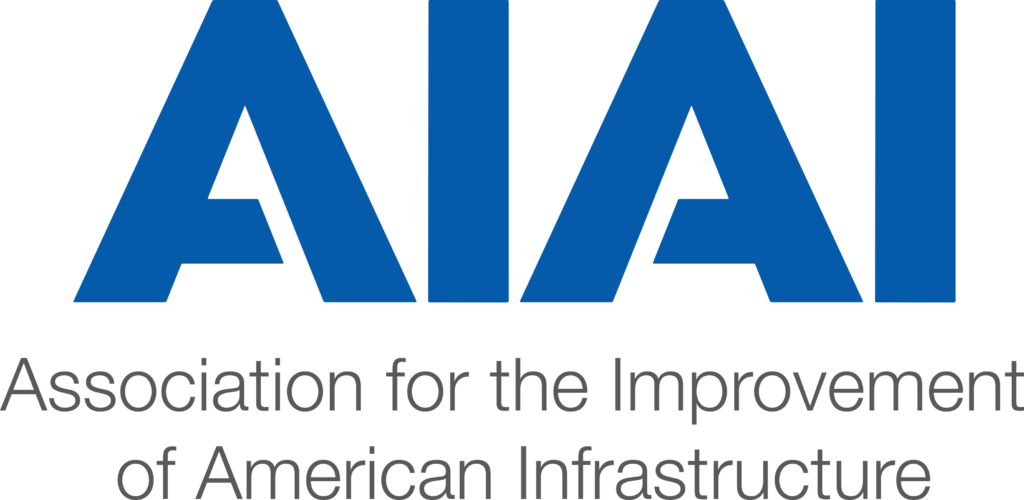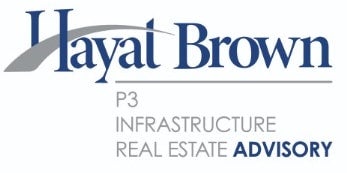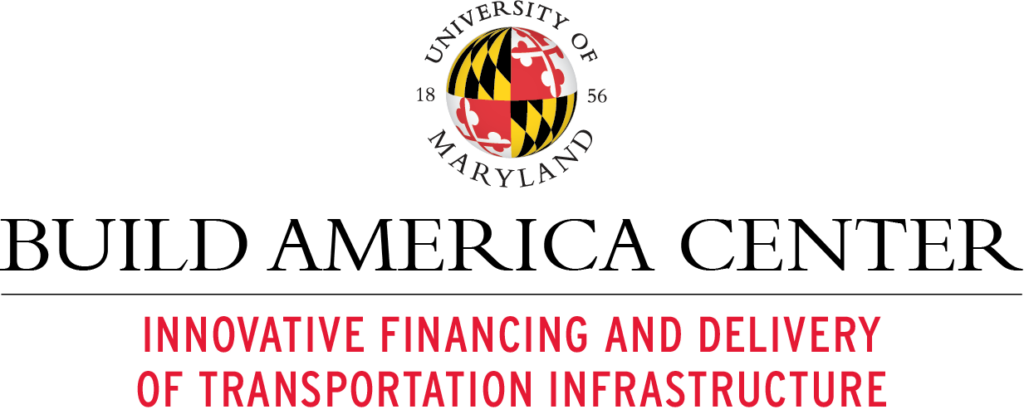Agenda as of 12/5/25. Please check back often for updates!
Sunday, Dec 07
-
5:00 pm — 7:00 pm
Badge Pick-Up + Exhibitor Set-Up
Anacostia Foyer -
6:30 pm — 9:00 pm
AIAI Networking Reception (Open to AIAI Members and Public Sector Attendees)
Anacostia FoyerPlease join fellow AIAI members and public sector guests for light fare, cocktails and dessert.
Monday, Dec 08
-
7:00 am — 5:00 pm
Check-In & Registration
Anacostia Foyer -
7:30 am — 8:45 am
P3 101 Questions and Answers Breakfast Workshop (Open to Public Sector Only/Advanced Registration Required)
Anacostia Ballroom Salons D&EJoin industry leaders and AIAI members for breakfast and an interactive conversation specifically tailored to the needs of public agencies evaluating P3s. This breakfast workshop is designed for those beginning to explore P3s, helping them understand where P3s are applicable, and how they can save money and time when dealing with upgrades, repairs, and maintenance. Learn when P3s do or do not make sense, and what major considerations need to be made when choosing this route, including the critical first steps. Click here to register.
Presenters:Andrew Smith, Partner, Ashurst LLPChristopher Shaeffer, Senior Program Director, RS&HNick Farber, Vice President, Kiewit Development CompanySia Kusha, Senior VP, Group Head Business Development & Partnering, Plenary AmericasTim Treharne, Principal, Advisory Services, Arup -
8:00 am — 9:00 am
Networking Breakfast
Expo Hall (Anacostia Ballroom Salon F) -
9:00 am — 9:45 am
Keynote: Build America Bureau at the US Department of Transportation
Anacostia Ballroom Salons D&EJoin us for this dynamic keynote as we hear from Morteza Farajian, Executive Director of the Build America Bureau at the U.S. Department of Transportation.
-
9:45 am — 10:30 am
Optimizing Outcomes: How Michigan Department of Transportation is Advancing Infrastructure Through Innovative Finance
Anacostia Ballroom Salons D&EThe Build America Bureau has established the Innovative Finance & Asset Concession Grant program to help public entities fund and explore innovative approaches for the delivery of infrastructure projects. The Michigan Department of Transportation (MDOT) has a history of successful delivery of projects using alternative delivery and public private partnerships. As the first recipient of this grant, MDOT is building a more programmatic framework and embedding alternative delivery assessments into the organization to optimize its capital program and advance key policy priorities. In this panel representatives from MDOT and USDOT Build America Bureau will discuss objectives, lessons learned and opportunities for how to better incorporate these processes in the planning and assessment process, work closer with the federal government, and deliver better results for constituents.
-
10:30 am — 11:00 am
Networking Break
Expo Hall (Anacostia Ballroom Salon F) -
11:00 am — 12:30 pm
Inside the Match: Project NEXT
Anacostia Ballroom Salons D&EStep inside a real-world P3 “match” and follow its journey from concept to impact. In this 90-minute interactive session, we begin with a concise project overview from the public-sector owner, exploring the vision, chosen delivery model, financing structure, partner selection, and current status. We then open the conversation to key partners and industry observers for candid insights on what made the match work — or where challenges emerged — and what the project means for the future of similar partnerships. The session concludes with roundtable discussions where attendees examine specific aspects such as procurement, design, financing, construction, community engagement, negotiations, and risk management. Learn more about our first "Inside the Match: Transportation" below:
In December 2025, Transurban and the Virginia Department of Transportation will open the 495 Express Lanes Northern Extension (Project NEXT) to traffic. The latest installment of the public-private partnership that has unlocked mobility in the Washington, D.C. region.
NEXT is one of several enhancements and extensions Transurban has undertaken during its partnership with VDOT—based on that long-term relationship that has established trust and fostered collaboration between the partners. Transurban has worked with the Commonwealth across seven administrations for over 15 years, enabling faster, more reliable trips on the 95, 395, and 495 Express Lanes—and now, with NEXT, through one of the worst bottlenecks in the region.
In addition to increasing mobility in the region, this project also makes significant community investments, including new stormwater management, local stream restoration, two more miles of multi-use paths that connect regional trails, and bridge rehabilitation and widening.
Leveraging low interest rates during the covid pandemic, the project was funded via refinancing of Transurban’s other assets in the Washington, D.C. region—reducing costs through lower rates while also combining creative funding solutions such as TIFIA and PABs.
Moderator:Jonathan Gifford, Professor, George Mason UniversityPanelists:Beau Memory, President, North America, TransurbanJavid Mammadov, Director of Corporate Finance, TransurbanJeong Yun Kweon, Deputy Director, Virginia Department of TransportationYoung Lee, Partner, Orrick, Herrington & Sutcliffe LLP -
12:30 pm — 1:30 pm
Networking Lunch
Expo Hall (Anacostia Ballroom Salon F) -
1:30 pm — 2:15 pm
Fireside Chat with Pete Meachum, Chief of Staff, U.S. Department of Transportation
Anacostia Ballroom Salons D&EJoin us for a fireside chat with Pete Meachum, Chief of Staff, U.S. Department of Transportation and Alberto Gonzalez, Global Head of Business Development for Cintra, a Ferrovial company.
-
2:15 pm — 3:00 pm
Building Baltimore’s Renaissance: Innovative Public Strategies for Transformative Capital Investment
Anacostia Ballroom Salons D&EBaltimore is experiencing a powerful resurgence—one shaped by bold leadership, renewed civic energy, and a deep commitment to equitable growth. Across the city, long-awaited infrastructure upgrades, new community-centered developments, and catalytic public investments are redefining how Baltimore lives, moves, and thrives. But behind this momentum is an equally compelling story: how government is reimagining the way capital projects are planned, financed, and delivered.
This panel brings together city leaders, developers, and advisors who are driving Baltimore’s renaissance through creative capital strategies. They will explore how the City is leveraging new funding mechanisms, forging unconventional partnerships, deploying data-driven decision-making, and aligning infrastructure investment with community priorities. From maximizing federal and state dollars to piloting novel financing models and accelerating project delivery, Baltimore is demonstrating what it takes for a government to be both visionary and pragmatic.
Attendees will gain insight into the systems, policies, and collaborative approaches that are turning ambitious plans into tangible progress. Whether you work in the public sector, urban development, finance, or community advocacy, this conversation will reveal powerful lessons on how cities can deliver transformative projects—efficiently, equitably, and creatively—to ignite their own renaissance.
-
3:00 pm — 3:15 pm
Networking Break
Expo Hall (Anacostia Ballroom Salon F) -
3:15 pm — 4:00 pm
Roundtables
Anacostia Ballroom Salons D&E -
3:15 pm — 4:00 pm
Roundtable #1: Riding the Managed Lanes Boom: What’s Next for P3s?
As demand grows for reliable, congestion-relieving transportation options, managed lanes are emerging as one of the most active segments in the P3 market. This roundtable invites participants to examine the market forces, policy shifts, and financing innovations propelling this rapid expansion—and to explore how agencies and private partners can adapt to seize new opportunities. Attendees will discuss evolving delivery models and lessons learned from recent procurements. Join peers and industry leaders for an open conversation about where the managed lanes market is headed and what it means for the next generation of P3 projects.
-
3:15 pm — 4:00 pm
Roundtable #2: P3 Insurance Hot Topics
This roundtable will explore key topics, including successful coverage strategies and how to effectively address gaps in insurance availability.
Panelists will share their expertise on identifying where insurance coverages have proven effective, as well as practical solutions for managing situations where coverage may fall short. By engaging with industry experts, attendees will gain a deeper understanding of the complexities of insurance in P3 projects, equipping them with the knowledge needed to navigate potential pitfalls and enhance project resilience
-
3:15 pm — 4:00 pm
Roundtable #3: Collaborative Enforcement: Driving P3 Project Value through Key Performance Indicators and Payments
P3s offer opportunities to transfer design, construction, financing and maintenance risks to a private partner and this value is preserved by a combination of collaborative relationships, between owner and partner, and the owner’s active management of the contractual performance regime. This round table will explore the contractual tools available to owners to preserve value, and the benefits of risk transfer, including application of availability and noncompliance KPIs and deductions and audit, monitoring and step-in rights. This learning can be applied to all project types including energy, residential and educational infrastructure and research and innovation campuses.
Special Thanks to
-
3:15 pm — 4:00 pm
Roundtable #4: Dead in the Water” to “Financial Close” — Lessons from Projects That Almost Failed
Major U.S. P3 projects often encounter moments where cancellation or collapse seems unavoidable—contractor withdrawal, commercial disputes, political turnover, or unmanageable risk. Yet some high-profile projects have been "resurrected" through restructuring and collaboration. This roundtable analyzes the tools and decisions that brought projects “back from the brink.”
-
4:10 pm — 5:00 pm
Working Across Federal, State, and Local Governments for Successful P3
Delivering successful P3 projects requires seamless coordination across government layers—aligning federal funding tools, state leadership, and local implementation. This session will highlight strategies for collaboration, drawing from real-world examples where multi-level alignment accelerated delivery.
Moderator:Sam Beydoun, Project Management Lead, Build America CenterPanelists:Peter Mancauskas, Innovative Finance Program Manager, U.S. Department of Transportation, Federal Highway AdministrationTilly Chang, Executive Director, San Francisco County Transportation AuthorityTim Matthews, Assistant P3 Division Director/Pre-let Administrator, Georgia DOT -
5:00 pm — 6:00 pm
Networking Reception
Expo Hall (Anacostia Ballroom Salon F)Join us at this special networking event for all conference delegates.
Tuesday, Dec 09
-
8:00 am — 2:00 pm
Check-In & Registration
Anacostia Foyer -
8:00 am — 9:00 am
Networking Breakfast
Expo Hall (Anacostia Ballroom Salon F) -
9:00 am — 9:45 am
Building and Sustaining Innovative Finance & P3 Offices: Lessons from the Frontlines
Anacostia Ballroom Salons D&EStates are increasingly establishing Innovative Finance and P3 offices to expand their capacity to deliver complex infrastructure projects. This session will explore how these offices are created, structured, and sustained, with insights on staffing, project pipeline development, and building political and public support. Speakers will share practical lessons on embedding finance expertise into project development, managing risks, coordinating across agencies, and measuring success. Case studies from transportation, water, and energy sectors will highlight both opportunities and challenges, offering actionable guidance for governments and partners seeking to institutionalize innovative finance capabilities and advance major infrastructure programs.
Moderator:Peter Mancauskas, Innovative Finance Program Manager, U.S. Department of Transportation, Federal Highway AdministrationPanelists:Bryan Ledford, Major Projects Bureau Chief, Tennessee Department of TransportationFaizan Habib, Director, Office of Public-Private Partnerships, Virginia Department of TransportationMarshall Macomber, Chief of Innovative Finance and Delivery, Maryland Department of TransportationQingbin Cui, Director, Build America Center -
9:45 am — 10:30 am
Accelerating Infrastructure: The Role of Permitting Reform in Unlocking Private Investment
Anacostia Ballroom Salons D&EThe modernization of America's infrastructure often encounters challenges related to a complex, time-consuming, and multi-jurisdictional permitting and regulatory processes. These can introduce significant project risks and escalate costs, which may influence private sector interest despite a growing need for public-private partnerships (P3s) to deliver essential projects. This panel discussion will explore how recent and proposed changes to the regulatory landscape - from federal rollbacks to state-level initiatives and new court decisions - could serve as a catalyst for a new era of infrastructure development by creating a more predictable and efficient environment.
Drawing on expert analysis from leading voices, we will examine the direct economic impacts of streamlining permitting and evaluate whether regulatory reform can truly accelerate investment and lead to better project outcomes. The conversation aims to bring together a diverse group of stakeholders, which may include a developer to share on-the-ground experiences with navigating current approval systems, a state agency official to provide a government perspective on implementation and community engagement, a policy analyst to break down the legislative and economic implications of policy shifts, and an environmental lawyer to discuss the legal framework and potential challenges.
Attendees will gain a comprehensive understanding of the current permitting environment, the tangible benefits and trade-offs of reform, and actionable insights on how to foster a more predictable and collaborative ecosystem for P3s. The discussion aims to bridge the gap between policy theory and practical project delivery.
-
10:30 am — 11:00 am
Networking Break
Expo Hall (Anacostia Ballroom Salon F) -
11:00 am — 11:45 am
Collaborating for Credibility: How Project Teams and Communications Drive P3 Success
Anacostia Ballroom Salons D&EGaining public and political trust through effective media strategy and clear messaging is critical in successful Public-Private Partnerships (P3s). ADOT panelists will explore how communication influences public perception and political support for major infrastructure investments, with a focus on some of Arizona Department of Transportation’s (ADOT) P3 initiatives. Attendees will gain insight into best practices for aligning public messaging with community values, leveraging media platforms for transparency, and building political trust to ensure long-term project success. Central to this success is the close collaboration between ADOT’s project management and communications team, working in lockstep to align messaging with technical milestones, address public concerns, and ensure consistency across outreach efforts. This panel discussion will also highlight the evolving role of public information officers and outreach professionals in shaping narratives that foster confidence in P3 models.
-
11:45 am — 12:30 pm
Building Certainty in an Uncertain World: The Future of Infrastructure Delivery
Anacostia Ballroom Salons D&EAs the external conditions impacting infrastructure construction become more complex, the best project leaders are focusing on what's within their control, building certainty by centering the basic building blocks for an exceptional project: schedule, cost, and quality. Join this multi-faceted and robust panel discussion, where experts will share the tools, methodologies, and hard-won knowledge enabling their success in these foundational areas, and beyond.
Moderator:Mallory Schupp, Market Director - Transportation & Water, UlteigPanelists:Aaron Lauinger, General Manager and Vice President, UlteigDeniz Mustafa, Senior Director, Infrastructure Finance, Associated General Contractors of AmericaJohn Fernandes, Director Intelligence, UlteigRod Ambrosie, Project Quality Manager, Red River Valley Alliance -
12:30 pm — 2:00 pm
Lunch + Closing Session
Anacostia Ballroom Salons D&E


